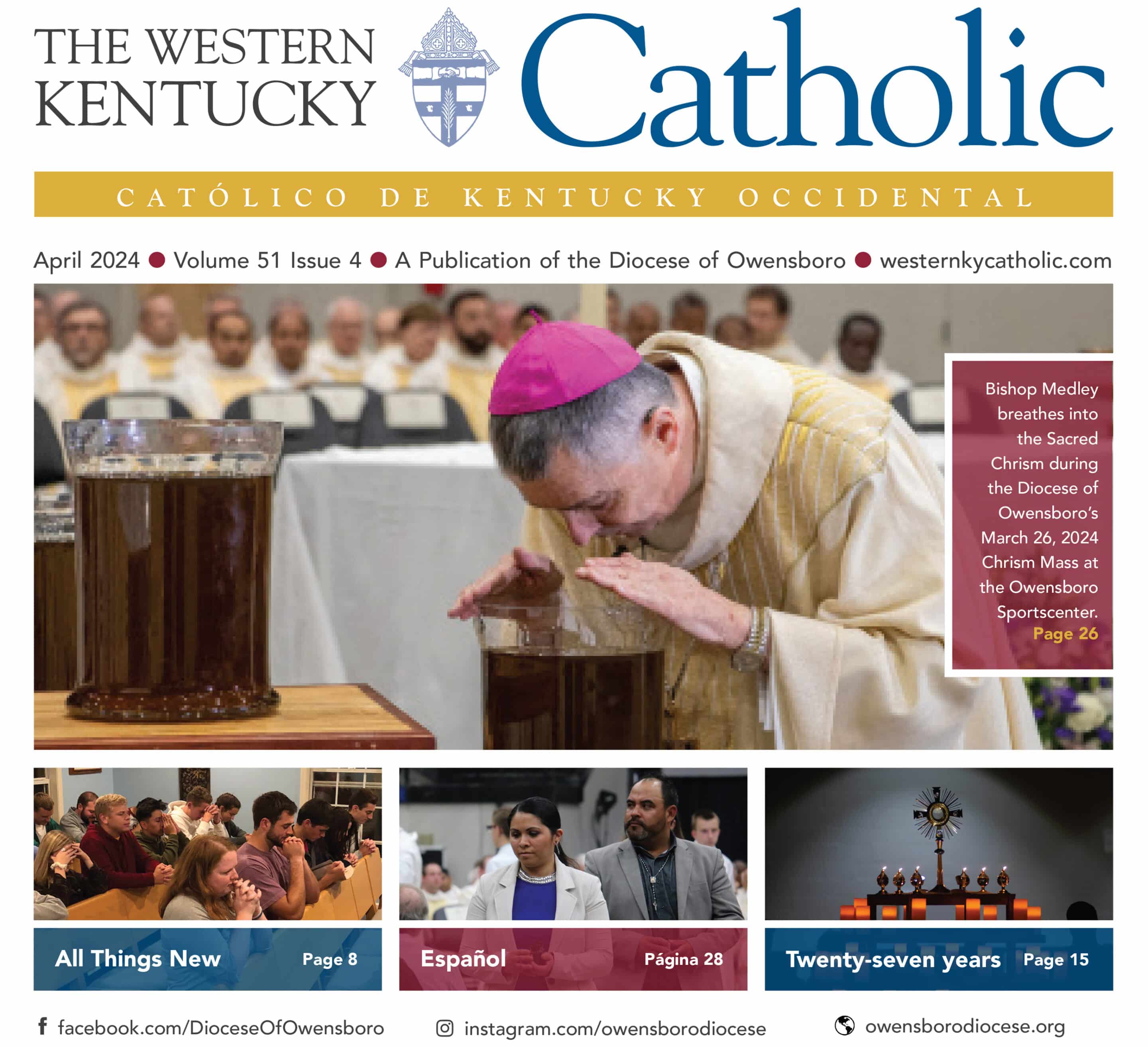
Amber Payne (left) assists a teen camper at Christmas/New Year’s Camp held at Gasper River Catholic Youth Camp and Retreat Center from Dec. 29, 2022 to Jan. 1, 2023. COURTESY OF GASPER RIVER
New Year’s resolutions and the Eucharist: A deep connection
BY DCN. JAY W. VANHOOSIER, OFFICE OF FAITH FORMATION
The relationship between New Year’s resolutions and the Eucharist is an intriguing one worth exploring. While superficially, these two concepts may appear entirely different, a deeper reflection reveals profound connections that highlight the importance of personal growth, self-reflection, and spiritual nourishment.
New Year’s resolutions are commitments individuals make at the beginning of the year, aiming to improve themselves in different aspects of life. It is a time of self-evaluation and aspiration for positive change. Similarly, the Eucharist is a profound sacramental experience where the faithful receive the Body and Blood of Christ. It is a moment of deep contemplation, a spiritual feast, and an opportunity for transformation.
One of the fundamental tenets of Catholicism is the belief in ongoing conversion – which aligns with the essence of making resolutions. Catholics are called to continually grow in holiness, seeking to align their lives with the teachings of Christ. Just like the New Year’s resolutions serve as a conscious effort to better oneself, the Eucharist is a reminder of the ongoing journey towards spiritual transformation. By receiving Christ in the Eucharist, Catholics are reminded of their need for His grace and are encouraged to grow closer to God.
Moreover, both New Year’s resolutions and the Eucharist necessitate self-reflection. To make meaningful resolutions, individuals must engage in introspection, identifying areas in their lives that require improvement. In the same vein, the Eucharist invites Catholics to pause and reflect on their relationship with God, their actions, and their reliance on His mercy. This introspection is vital for spiritual growth and for the continual betterment of oneself.
Another key connection lies in the concept of nourishment. Just as individuals strive to nourish their bodies with healthy habits through resolutions, the Eucharist provides nourishment for the soul. The Blessed Sacrament is the real presence of Christ, providing spiritual sustenance and sustenance for the journey of faith. Through the Eucharist, Catholics experience communion with Christ, deepening their relationship with Him, and finding strength and encouragement to persevere in their resolutions.
Additionally, both resolutions and the Eucharist require perseverance. Often, New Year’s resolutions are abandoned after a short period due to the challenges of implementing new habits. Similarly, in the spiritual journey, individuals may face obstacles and struggles. The Eucharist reminds the faithful that Christ is present in their struggles and is ready to offer His grace and strength. The act of receiving the Eucharist can instill perseverance, encouraging Catholics to keep striving for their resolutions even when faced with difficulties.
So, while New Year’s resolutions and the Eucharist may seem dissimilar on the surface, a deeper understanding reveals their significant connections. Both call for introspection, personal growth, nourishment, and perseverance. The Eucharist serves as a profound reminder of the ongoing journey of conversion. By reflecting on these connections, Catholics can approach their resolutions with a renewed perspective, intertwining their personal growth with their spiritual nourishment, ultimately seeking to align their lives with the example of Christ.
Dcn. Jay W. VanHoosier is the Director of Faith Formation for the Diocese of Owensboro. For more information visit owensborodiocese.org/faith-formation, email [email protected] or call (270) 852-8324.
Originally printed in the January 2024 issue of The Western Kentucky Catholic.

